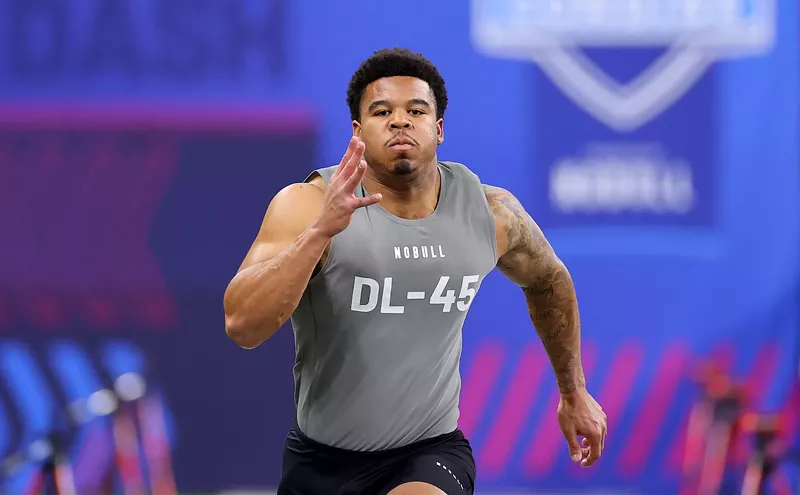The Miami Herald reported this story May 20 with a six-inch-long snippet buried below the fold on page 3B. "They feel wonderful, they're elated," attorney Roberta Fox told the Herald, referring to her clients Ewing, a former FIU assistant sports information director, and Rickey, a secretary. "What was important to them was that they filed a complaint with the university and nothing happened. No one ever said to them, 'We're sorry.' Now they feel vindicated." The article gives no indication why a mere $50,000 would deliver such a sense of vindication.
The Herald also quoted the alleged harasser. "I am glad that it is over, because I left FIU three years ago and these women have been falsely accusing me for three years," he said.
This man's name is Pedro F. Fonteboa and since January 1997 he has covered high school sports full-time for the Herald. Fonteboa also wrote for the newspaper as a freelancer for ten years before that. Although the Herald identified Fonteboa as a staffer, one crucial document was not mentioned in the paper's account: a nearly complete June 1996 investigation report that states unequivocally that Fonteboa, through more than a year of leering and lewd comments, sexually harassed women in the FIU athletics department, including a student.
FIU appears to have done its best to ensure this report never saw the light of day. University vice president Paul Gallagher asserted under oath that there was no final report and that the university had dropped the matter when Fonteboa left in September 1996. In an agreement Fonteboa negotiated with the university when he resigned, FIU bought out his contract for $25,000. The school also promised that "no report will be issued concerning the allegations filed with the Office of Equal Opportunity," a reference to the complaints brought by Ewing, Rickey, and five other women in the FIU athletics department.
Fox found the all-but-completed report tucked away in the personnel file of former assistant vice president Toni Margulies-Eisner. On May 19, 1999, the day after the report was entered into evidence, Ewing and Rickey accepted the university's settlement offer. Although Fox referred to Eisner's report in a press release on the settlement, the Herald decided not to share news of its existence with readers.
Eisner died of cancer in February 1998. Her 1996 report concludes that "Mr. Fonteboa's behavior did create an ongoing, pervasive hostile work environment for a number of women in the Department of Athletics," and recommended that "Mr. Fonteboa be suspended without pay." The period of suspension was left blank.
The lowlights of Eisner's report:
*Julie Durstine, a secretary, complained that "on more than one occasion, Mr. Fonteboa made inappropriate comments to her, such as suggesting that they should go out and have a few drinks and that he liked her body."
*Ewing said whenever Fonteboa talked to her, he either looked her up and down or stared at her breasts. Once Fonteboa came into her office, and "after telling her how good she looked, he told her that if he was available he might have to pursue her," Eisner wrote. "When she told him that he is married, he said that he might not be for much longer, and he was looking for a way to tell his wife that it was over."
*Sue-Moy Chin, an assistant women's soccer coach, told Eisner that, beginning when she was an undergraduate student and an All-American goalie on the the university's soccer team, she often caught Fonteboa "checking her out," and that he repeatedly commented on her beauty. "On one occasion Ms. Chin ran into Mr. Fonteboa on the upstairs track in the [Golden Panther] Arena. He told her that she is about the same age as his wife, and that if he didn't have a wife, he'd like to take her out."
*Receptionist Rickey described the time Subrageous Subs donated a four-foot sub to the athletics department. After secretary Yolanda Parga remarked on "how long and pretty the sandwich was," Fonteboa muttered a few words. Parga later told Rickey that Fonteboa had said "he had something long and pretty that she could take a picture of, and it was not the sandwich to which he was referring." (When questioned by Eisner, Parga did not recall the incident.)
*Parga did remember Fonteboa commenting on a print of Rickey's wedding portrait. His assessment of the blushing bride, according to Parga: "She's well stacked."
After cataloguing the allegations of seven women, Eisner described interviews with "all of the salaried female staff and some of the [part-time] female staff in Intercollegiate Athletics" as well as several administrators. Women who worked closely with Fonteboa and the complainants "were aware of the discomfort of others and/or described behavior which they believed was sexually discriminatory," Eisner wrote.
Fonteboa defended himself both in writing and in interviews with Eisner. He characterized the accusations as false and asserted the women's harassment charges were in retaliation for whistleblower complaints he had filed against his boss, then-athletic director Ted A. Aceto. Fonteboa also alleged that Ewing's motivation for complaining was her romantic attachment to Aceto's son Ted, an assistant athletic director. Ewing denied (and still denies) any such relationship with Ted Jr.
The report wasn't quite complete. On the first page, Eisner had scribbled the following note to her secretary: "There may be a need for some additional followup (see p. 6). But I'm hoping we're close to the end." On page six was a passage that read, "need to fill in here on his statement that women in athletics have offered him support after I hear back from Pedro." This loose end did not stop her from writing the following conclusion: "The weight of the evidence shows Mr. Fonteboa's defense(s) to be either pretextual or unconvincing. The seven complainants, and the witnesses who support [their] allegations, are more credible than [is] Mr. Fonteboa's assertion that the allegations are directly or indirectly in retaliation for his having filed a 'whistle-blower' complaint against Dr. Aceto. Therefore, it is believed that Mr. Fonteboa's behavior did create an ongoing, pervasive hostile work environment for a number of women in the Department of Athletics."
Although Eisner didn't buy Fonteboa's conspiracy theory, it's true the assistant athletic director had accused his superiors of malfeasance. Witnesses in Ewing and Rickey's suit offered mountains of testimony about the tumultuous early months of 1996 in the FIU athletics department. By May of that year, at least four separate investigations were under way. In addition to the probe of Fonteboa's harassment:
*Alfredo Acin, FIU's inspector general, was looking into the existence of office betting pools on the men's and women's college basketball tournaments, and of "fantasy leagues." Both are potential (albeit minor) violations of NCAA rules against gambling. Fonteboa initiated this investigation by complaining to Acin. Ted Aceto, Jr., was involved in the pools and the fantasy leagues.
*Acin also was investigating allegations that Ted Aceto, Sr., misused his parking and car-allowance privileges, improperly accepted gifts, and engaged in nepotism.
*Acin was examining charges that Fonteboa had stolen from the university by padding his expense account and inappropriately accepting a gift.
All of Acin's investigations were eventually completed. Yes, there were office pools and fantasy leagues in violation of NCAA rules; the university transferred Aceto Jr. to another office in April 1996. He resigned from FIU a few months later.
Some of Fonteboa's allegations against Ted Sr. were found to be groundless, but Acin still concluded Aceto showed "a pattern of conduct unbecoming of an FIU official."
In September 1996 Acin forwarded this report to FIU president Mitch Maidique and vice president Paul Gallagher for "consideration and appropriate action." Aceto resigned from FIU in March 1997, citing philosophical differences with Maidique regarding issues such as changing athletic conferences and starting a Division I-A football program.
The theft allegations against Fonteboa were taken care of in Fonteboa's exit agreement. Fonteboa told Gallagher that some funds were missing as a result of bookkeeping mistakes; in his resignation deal, Fonteboa was required to pay $1500 to the university "for certain travel and meal expenses."
Gallagher said he never told Eisner not to finish her report. He testified in the Ewing case he couldn't remember all the details. "Dr. Eisner knew that we had reached, or were reaching, an agreement with Mr. Fonteboa. The policy would be I assume ... that a report would not be issued because the person left the university."
That wasn't good enough for Sunnie Ewing. "I just wanted to find that report, so [Fonteboa] can't say this never happened," Ewing declares. "Without [Eisner's] report, he's free to come out in the Herald and say, 'These women having been lying about me.'"
The Herald hired Fonteboa full-time in January 1997 as its top high school sportswriter. His position as a Herald employee did not stop the paper from covering the Ewing lawsuit. In September 1997, two months after the suit was filed, staff writer David Lyons wrote a news story about it that quoted Ewing and Rickey's complaint. It also quoted Fonteboa and described his settlement with FIU, mentioning the line about the Office of Equal Opportunity allegations only as an assertion by the plaintiffs.
Despite the disingenuous treatment of the issue by the Herald and FIU, Ewing wants parents to consider this: "When Fonteboa is standing on the sideline with all the cheerleaders at a football game, I'm sure parents would like to know that this man has sexually harassed women and students before."










